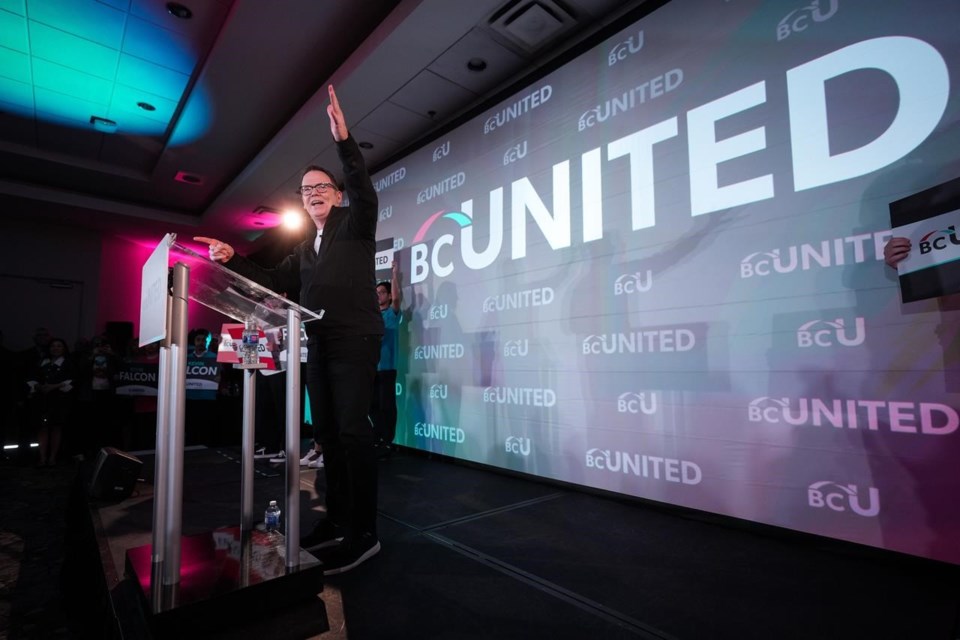SURREY, –°¿∂ ”∆µ — Opposition Leader Kevin Falcon lowered the curtain on the British Columbia Liberal Party Wednesday, ushering in –°¿∂ ”∆µ United, a new name and branding for the political party once led by premiers Gordon Campbell and Christy Clark.
"What an incredible moment," Falcon told party members gathered at a Surrey, –°¿∂ ”∆µ, hotel ballroom with the new name and logo emblazoned on a screen behind him.
The changes capture "an energetic, new feel" that reflects what Falcon described as a bright future for British Columbia.
"It's about us coming together, bridging our diverse backgrounds, and our perspectives while uniting to genuinely improve the lives of British Columbians," he said.
The audience cheered as Falcon touted his party's approach to issues including economic growth, public safety, mental health, housing affordability and climate change. The party will introduce new policy proposals in the coming months, he added.
"–°¿∂ ”∆µ United is way more than a new name," he said. "It's about knowing what we stand for, and fighting for it on behalf of all British Columbians, every single day."
Falcon, who championed the name change during his leadership campaign, said it's a bold, bridge-building move, and voters would have 18 months to become familiar with the new name before the fixed provincial election date in 2024.
"This is very exciting for me," he said in an interview before the official launch.
"It is not often a major established party that had a name for 30 years has come forward and said we're going to do a complete shift and a total new direction."
The new party logo includes a stylized bridge with the words –°¿∂ ”∆µ United.
It replaces the party's former primary colours of red, blue and yellow with pink and teal tones. He said they still reflect the party's legacy but with shifting emphasis.
"The colours to me are so great because they are just so not political colours," he said. "It represents the new, vibrant fresh approach."
The party announced in November that 80 per cent of Liberal members voted to proceed with the name change to –°¿∂ ”∆µ United.
Debate about a name change has been around for decades as some members worried about a perceived — but inaccurate — connection to the federal Liberal party.
"Ninety-six per cent of British Columbians don't belong to any political party and too often we talk about voters as if they are members of parties," Falcon said.
"Most people aren't Liberal, aren't Conservative or aren't NDP. They are just people. They're looking for leadership that is going to get results."
The name change and new look reflect the political, geographical, social and cultural diversity throughout the province and within the party, he said.
"To me, and to us, it represents the building of all the traditional differences people think about in a broad, diverse culture," said Falcon.
"You've got religious differences, ethnic differences, socio-economic differences, but this is sort of how we can unite and those differences become a strength, just like a bridge."
–°¿∂ ”∆µ United is confident NDP Premier David Eby will stick to his previous promises that he will not call an early election, he said, adding the party will be prepared if that changes.
Former NDP premier John Horgan called a snap election in 2020 during the height of the COVID-19 pandemic, winning a majority and reducing the Liberals to 28 seats in the 87-seat legislature.
This report by The Canadian Press was first published April 12, 2023.
The Canadian Press




